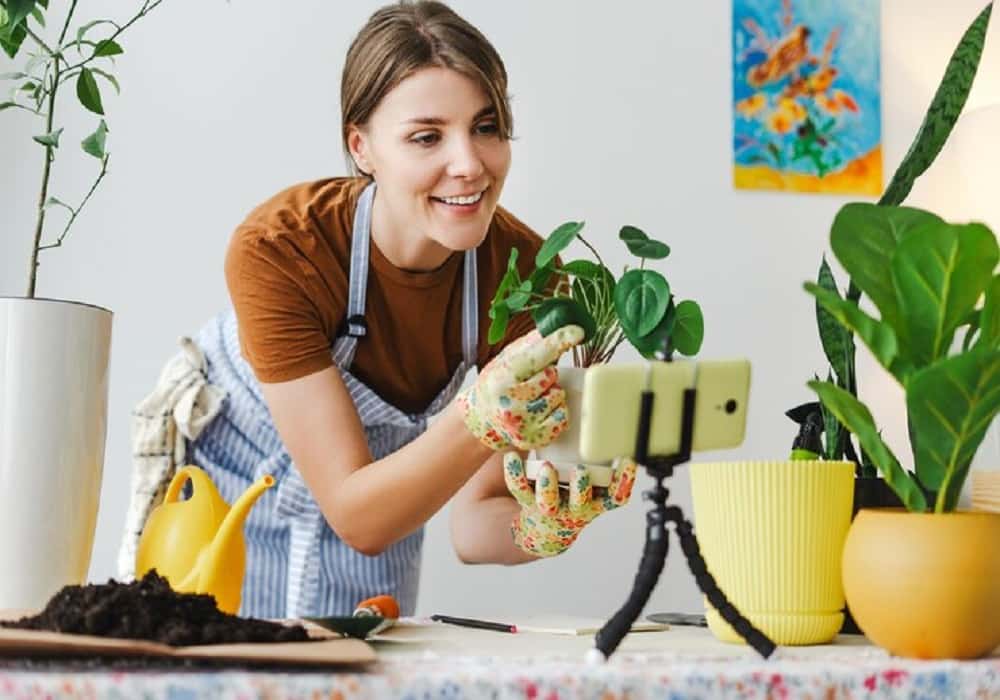More than just a pastime, gardening at home is a rewarding way to improve the appearance of your house, bring nature closer to your living area, and even generate your own food. Whether you have a sprawling backyard or a compact balcony, gardening can bring a sense of peace, creativity, and satisfaction to your daily life. If you're new to the world of plants, don't worry. With the right guidance and a little patience, anyone can become a successful home gardener.
In this article, we’ll explore the best tips for gardening at home to help beginners create their green sanctuary.
1. Start Small and Simple
If you’re just starting out, begin with a small area or a few pots. Choose low-maintenance plants such as money plant, aloe vera, snake plant, or marigold. These require minimal care and are perfect for beginners.
Pro Tip: Avoid the temptation to buy too many plants at once. Focus on learning how to take care of a few before expanding your garden.
2. Understand Your Space
One of the most important tips for gardening at home is to understand the space you're working with. Is it a balcony, terrace, backyard, or windowsill? How many hours of sunlight does it receive? You can choose the suitable plants with the aid of this information.
- Sunny spaces: Ideal for flowering plants, herbs, and vegetables.
- Shady spots: Suitable for ferns, peace lilies, and other shade-loving plants.
3. Choose the Right Containers
If you're gardening in pots or containers, make sure they have proper drainage holes. Clay pots are breathable and great for most plants, while plastic pots retain more moisture — good for hot climates.
You can also recycle old buckets, tins, or even broken mugs to create quirky and eco-friendly planters.
4. Use Good Quality Soil
The foundation of any successful garden is healthy soil. Use a mix of garden soil, compost, and cocopeat for the best results. This combination helps retain moisture while also providing nutrients and good drainage.
Adding organic compost or kitchen waste compost improves soil fertility and promotes plant health.
5. Water Wisely
Overwatering is one of the most frequent errors made by novices. Knowing what your particular plants require in terms of water is crucial because every plant has different needs.
General tip: Water in the early morning or late evening to minimize evaporation and allow roots to absorb moisture properly.
6. Provide Enough Sunlight
Plants need sunlight to photosynthesize and grow. The majority of fruit-bearing and flowering plants require four to six hours of sunlight each day.
If your home lacks direct sunlight, go for indoor plants like ZZ plant, pothos, spider plant, or lucky bamboo, which thrive in low-light conditions.
7. Feed Your Plants Naturally
Use organic fertilizers like vermicompost, banana peels, used tea leaves, or eggshells to nourish your plants. These natural solutions are cost-effective and chemical-free.
Feeding your plants once every 2-3 weeks will help boost their growth and blooming.
8. Regular Pruning and Cleaning
Regular pruning helps remove dead or yellow leaves and encourages new growth. Clean the leaves to remove dust and check for pests or insects.
This not only keeps your plants healthy but also maintains their shape and appearance.
9. Keep an Eye Out for Pests
One essential tip for gardening at home is to monitor your plants regularly for signs of pests or disease. Look for holes in leaves, sticky residue, or discolored spots.
Use natural pest repellents like neem oil spray or garlic-chili spray to keep pests away without harming the plant.
10. Experiment and Learn
Gardening is a journey of learning. Don’t be afraid to experiment with different plants, layouts, or techniques. Sometimes a plant may not survive — and that’s okay. Learn from it and keep going.
Join online gardening communities or follow gardening blogs and videos for daily inspiration and support.
Bonus Tip: Involve the Family
Gardening is a wonderful activity for all ages. Involving kids or family members can make it more fun and educational. Assign small tasks like watering or planting seeds to make it a shared experience.
Benefits of Home Gardening
- Reduces stress and promotes mindfulness.
- Improves indoor air quality.
- Helps you grow your own herbs and vegetables.
- Enhances the beauty and calmness of your home.
- Encourages a healthy and eco-friendly lifestyle.
Conclusion
Gardening at home brings immense joy and numerous benefits. Whether you're growing herbs on your windowsill or cultivating flowers on your terrace, it's a rewarding hobby that connects you with nature. By following these simple tips for gardening at home, you can create a lush green space that brings happiness and calm into your everyday life.
So grab a pot, plant a seed, and start your gardening journey today!
FAQs
Q1: What are the easiest plants to start with at home?
A: Money plant, aloe vera, basil, mint, and snake plant are great for beginners.
Q2: How often should I water my home garden?
A: Most indoor plants need watering 2–3 times a week. Always check the soil moisture before watering.
Q3: Can I do gardening at home if I live in an apartment?
A: Absolutely! Balcony, terrace, or even window gardening is perfect for apartment dwellers.





Comments